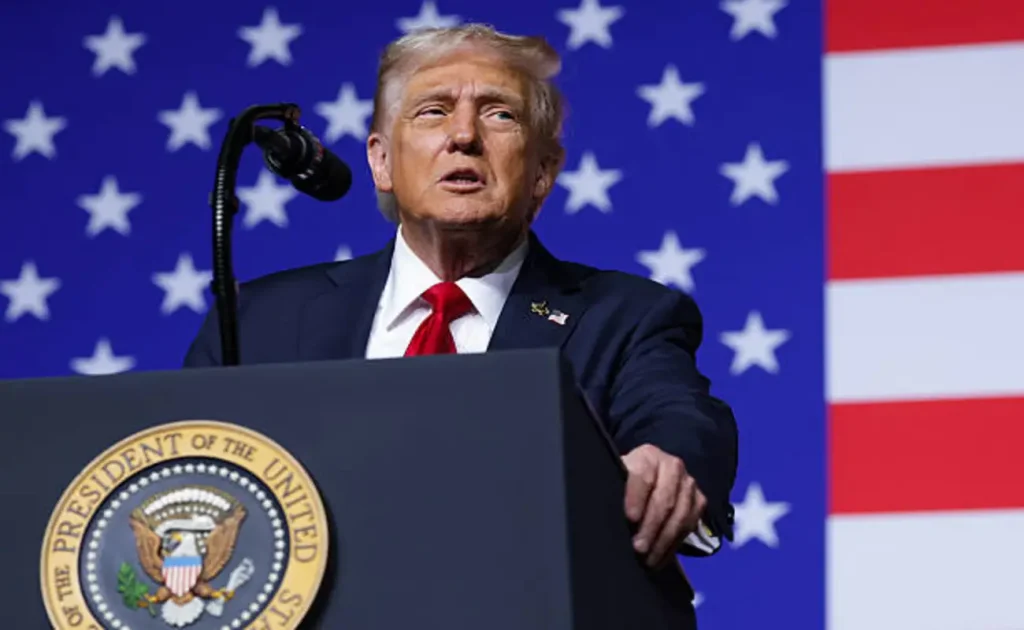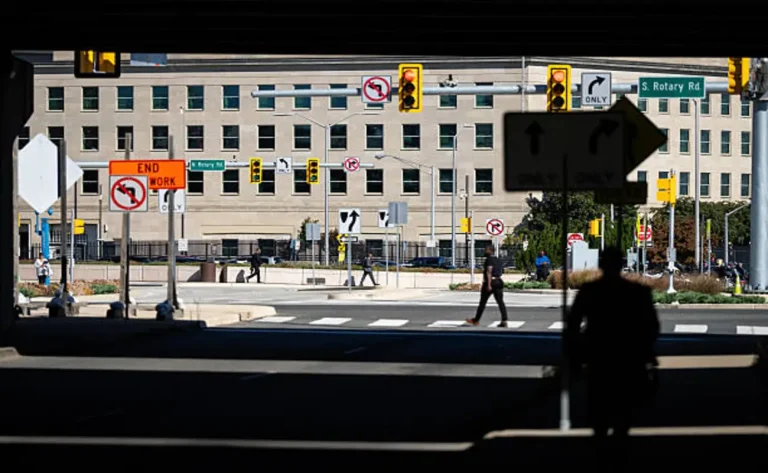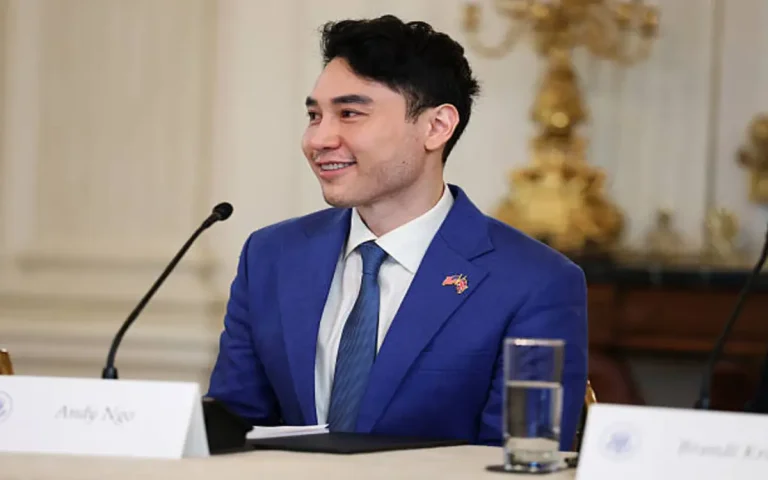
President Donald Trump speaks to military leaders at Marine Corps Base Quantico, Virginia, September 30, 2025. Alex Wong/Getty Images
Democrats said they refused to back a short-term funding bill without securing expanded health care allocations for low-income communities.
Republicans countered that Democrats were obstructing progress and using health policy as a bargaining tool to win political concessions.
The shutdown began at 12:01 a.m. local time after the Senate rejected a funding resolution that had already cleared the House of Representatives.
The stoppage forced immediate closures across multiple federal agencies, leaving hundreds of thousands of employees without pay until lawmakers reach an agreement.
Millions of Americans who rely on federal services now face interruptions, according to officials from several affected departments.
President Trump told reporters in the Oval Office that his approach would hit Democrats hardest during the crisis.
“So we’d be laying off a lot of people that are going to be very affected. And they’re Democrats, they’re going to be Democrats,” Trump said.
His remarks signaled that Democratic strongholds in the public sector could see sustained job losses if the stalemate drags on.
The White House argued that Democrats were prioritizing political issues instead of maintaining essential government operations.
Opposition leaders in Congress rejected that claim, accusing the president of weaponizing the shutdown to push partisan goals.
Shutdown halts federal agencies
Government officials confirmed that departments overseeing transportation, agriculture, and housing would stop most functions during the funding lapse.
The Department of Homeland Security said border operations and airport screenings would continue under emergency protocols, but many support staff would be furloughed.
The Pentagon announced that active-duty military operations would proceed, but civilian contractors and non-critical programs would face immediate suspensions.
Health and Human Services officials warned of disruptions to community clinics unless lawmakers approve additional resources soon.
Trump defends shutdown strategy
Trump defended his approach by claiming Democrats had pushed the negotiations to collapse.
“They could have voted very easily, but they decided to put politics above the country,” he told journalists.
The president framed the dispute as a broader ideological battle over federal spending priorities.
He accused Democrats of forcing the administration into shutdowns similar to those witnessed during his previous term.
Independent budget analysts noted that the shutdown would weaken economic productivity if it continues beyond several weeks.
Congressional leaders remained divided after late-night talks collapsed before the midnight deadline.
Partisan gridlock fuels political crisis
Senate Democrats demanded that any temporary spending deal guarantee long-term health program support for disadvantaged communities.
House Republicans insisted on passing a stopgap bill to extend funding into the next fiscal cycle without additional provisions.
The dispute mirrored earlier clashes in Congress that led to shutdowns under previous administrations.
The Congressional Budget Office, an independent agency, estimated that each week of shutdown could cost the economy billions in lost output.
Some lawmakers urged compromise to minimize damage to both federal employees and the public.
However, Trump said he would not consider funding resolutions that fail to include his administration’s demands.
“If they don’t want to negotiate, then the people will see who is responsible,” he said.
International observers noted that the shutdown again exposed sharp partisan divisions in the world’s largest economy.
The political impasse is being closely monitored by allies and financial markets concerned about potential disruptions.
Comparable shutdowns in the past created ripple effects in global trade and investment confidence, according to the International Monetary Fund.
Analysts said prolonged deadlock would damage U.S. credibility in financial institutions, including World Bank programs reliant on government-backed guarantees.
Related: YouTube Settles Trump Lawsuit for $22 Million to Fund White House Ballroom
As of Wednesday afternoon, no bipartisan breakthrough had been announced in the Capitol.
Reporting by John Matthews in Washington; additional reporting by Reuters. Edited for Epicstorian News.



